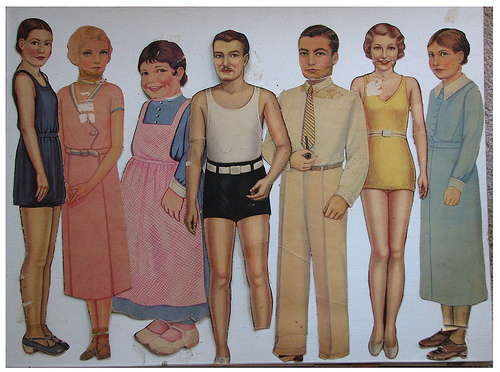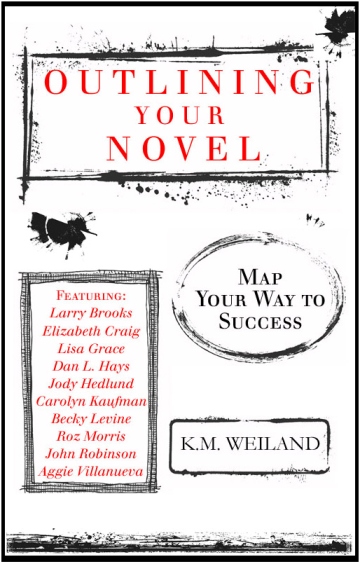Why, Why, Why?
I do a lot of manuscript critiques. Hundreds a year. I find the best way to get writers thinking about their plot and characters is to ask a lot of questions. And since I’m a novelist who loves deep, rich characters, I like to challenge my editing clients to push past the ordinary and into the realm of the complex.
For, people are complex. Humans are complicated. They really are. Maybe someone will disagree with me and claim the opposite. That people are simple, easy to figure out. Well, I’m guessing those who really believe that will probably portray boring, flat characters in their fiction.
I’m hoping, though, that you want to create characters that are complex and sometimes unpredictable who have countless facets to their personalities and seeming contradictions. Why? Because real people are like that, and we writers are supposed to be encapsulating real life in our novels. (Unless you’re deliberately trying not to for some reason).
And to me the best way to dig deep and get to the heart of a character is to ask “why?”
Socrates Had the Right Idea
Remember that guy Socrates? Something called Socratic questioning developed out of his teachings. He was a guy who liked to ask why. A lot. Here’s what Wikipedia has under the topic:
Socratic questioning is disciplined questioning that can be used to pursue thought in many directions and for many purposes, including: to explore complex ideas, to get to the truth of things, to open up issues and problems, to uncover assumptions, to analyze concepts, to distinguish what we know from what we don’t know, to follow out logical implications of thought, or to control the discussion.
The art of Socratic questioning is intimately connected with critical thinking because the art of questioning is important to excellence of thought. What the word Socratic adds to the art of questioning is systematicity [sic, should be sytematicness], depth, and an abiding interest in assessing the truth or plausibility of things.
Isn’t that what we writers want—to get to the “truth” about our characters, open up issues and problems, make our story plausible?
No, Don’t Show Me Magazine Pictures
Some writers like to cut out magazine photos to help them create their characters. I’m guessing they think by finding a guy with certain looks, it will make the character come alive to them. I hear writers talk about which actors they imagine populating their novels.
That idea kind of horrifies me. I mean, the last thing I want to envision is Angelina and Brad speaking my characters’ lines. Why? Because suddenly all I’ll see and hear is Angelina and Brad, and my original, fresh character ideas are thrown out the window.
I have the same problem with pigeon-holing characters by randomly choosing a Myers-Briggs formulaic description of a character personality. Why? because they are, yes, random, pigeon-holing devices that squeeze characters into a ready-made fast-food box and don’t allow them to grow organically within the “walls” of the story itself. It also smacks of laziness to me.
Why bother taking the time to really grow your characters when you can just cut out a picture and slap on a “type indicator assessment,” and voila!
Creating great characters takes time and effort. But if you really want to serve the needs of your story, it’s worth it. Your characters are your story, and so it’s crucial they are holistically integrated into the premise, plot, setting, and every other element in your story.
But although it takes time, it’s not all that hard to do. All you have to do is ask “why?”
“Why” Is the Key
Last year, on my blog, in my year-long course called Writing the Heart of Your Story, I put up a post called Getting to the Core of Your Characters. In it, I discussed the three most crucial elements novelists need to know about their characters: the lie, the need, and the fear. I also said this post was probably the most important one to study, out of all the year’s posts.
That’s why I’m revisiting it here. I still believe it is. I doubt I will ever stop believing it. I also believe that if writers really learn this and ask these “why” questions of each of their characters, they will create truly rich, believable, compelling characters every time.
It’s all about asking “why?”
After you’ve read through that post (homework assignment), consider some characters. Use the Socratic questioning method. Or just ask “why?”
A man goes on a rampage and kills people in a post office. Why? Because he’s angry. Why? Because he lost his job. Why? Because he kept messing up and couldn’t concentrate. Why? Because he just turned forty and his birthday depressed him. Why? Because his father, that jerk, always told him he’d amount to nothing, and it upset him. Why? Because he hates his father and wishes he was dead. Why? Because his father abused him all his life, treated him harshly, made him feel like a loser. Why? Well, clearly he was a loser. His father was right. He would never amount to anything. He may as well give up. Why? Because he no longer has any hope. Why? Because of how he was raised.
You can do this with each of your characters. You might have a plot, but all your characters have to drive the plot.
How? By way of their inner motivation. People do things for reasons. I can’t tell you how many novels I critique that portray characters who do things (sometimes big, dangerous, crazy things) for no reason whatsoever.
And you know what? It’s absolutely not believable. No one is going to risk their life by diving into a wild roaring ocean to save a pocket watch. Right? Well, if you set up the need, lie, and the core fear of your character carefully, it might be absolutely believable for him to do such a crazy thing.
Motivation Is Everything, but . . .
But it has to be believable! Why? Okay, I don’t need to answer that. You know the answer.
If you ask “why” of your characters, you can trace back and find (or create) the need they have, the fear that drives them, and the lie they believe. This character I created above has a need, a fear, and a lie he believes. Those three things drive him. They are behind his motivation for everything he does in the story.
The thrilling part of writing great stories with great characters is showing how these characters can uncover their lie, fear, and need, face them head-on, and actually conquer them or grow beyond them.
Little kids know instinctively that asking why takes us to the heart of every puzzle. They ask, “Why, why, why?”
Writers can learn a lot from the natural inquisitiveness of young children. Become like a child and start asking.
“Why?”












This is fantastic advice! And I love your example, really helpful. Asking these why questions is a fabulous way to develop your character’s backstory and motivations.
Great article!!
The lie – The need – The Fear
This is going on a note above my desk.
Thanks! Yet another excellent, helpful post. One thing I struggle with at times is how to introduce the character’s ‘lie’ and ‘why’ into the story without contriving a scene that doesn’t . There are so many ways…a narrative back story, conversation, actions, reactions…some might be explicit, but isn’t it best to merely ‘imply the why’ in order to pique interest and get the reader thinking?
If you truly know the motivation of a character, it can’t help but come out in their thoughts, words, and actions. You don’t need backstory.
Thanks for a good post. I like the Why, why, why method and will use that to help me flesh out my characters from now on.
Thank you! I’ve read several posts where authors talk about who they imagine playing their characters and I can never come up with actors for my characters. I thought maybe I’m not trying hard enough or developing my characters enough. But I think it’s that the people in my story are people, at least to me, and I can’t picture them as someone else.
And why? My son asks that question all the time. It drives me a little crazy, but it’s a good reminder to get at the heart of the problem.
Your wisdom never ceases to amaze me. I’ve been asking the “why” question for years of characters I’m trying to develop, but I had never seen the “why” expressed as need + fear + lie. I also read “Getting to the Core of Your Characters” and found its expansion of the idea equally helpful. Thanks so much for continuing (and re-visiting) these articles.
I came up with the need+fear+lie as I attempted to distill motivation down to the basics. Elizabeth George teaches how important the core need is. Others explore the idea of a wound in the past. Michael Hauge teaches about that lie that makes us create a persona but hides our true essence. All these things simply fit into that formula, which to me is a universal character truth. I explore these three elements with every character, for even the most minor characters must have motivation behind all they do and say.
Thanks I needed this. I’m planning a trilogy and I really need to get to know my characters. One frustrating character is the antagonist because he’s suppose to have some good to him, yet he’s going be cruel and manipulative….
Why is this so hard? Why so overbearing? Why? Why? WHY? (OK maybe I’m getting a little overly dramatic.)
Oh well, I’ll leave it at that it’s 1:56 AM and I probably should quit toying with my laptop….
~ Thanks
Yeah, I say why, why, why a lot about writing!
Great advice! Just posted the URL to highlight your article on the Christian Poets & Writers blog – http://christianpoetsandwriters.blogspot.com.
Great post! Digger deep and asking questions helps us to develop rich and wonderful characters…in other words, real people!
Question everything. Who, what, when, where, WHY, and how. Mercilessly interrogate all your characters, then do the same for your plot, dialog, and setting.
I agree with your analogy of ‘Socratic Thinking’ as a method to implement and add substance to the core development of a character. It is one thing for an audience to visualize a standard, descriptive profile, but quite another to capture the many layers hidden beneath the facade of one’s true nature. It is the difference between acting a part, or being in full command of your performance. Are you wearing a mask, or is the world your stage where faces become real and engaging…?
Life is a living, breathing, learning experience serving as a melting pot that has the potential to shape us in many directions. It can make us strong, fearless, passive, mediocre, decisive, rebelious, passionate, or it can cripple us indefinitely into isolation and madness. We will come to know all of these facets in a lifetime. Our human identity is forged by many physiological components, just as exposure to a natural and sociological enviromnent is profoundly influential.
It is a well-understood fact in the human personality, that the underlying sensory perceptions play an important role in our development. They have either stimulated, repelled, guided, misled, inspired, confused, motivated, or crushed our spirits at one time or another. A DNA system of intertwined, survival mechanisms operating even while we sleep.
That is the complexity of removing the mask and no longer simply observing, but living in the world you choose to make a statement about, by throwing caution to the winds and thriving by leaps and bounds…
Are you willing to take the risk and be free…? Will fear overpower you and be a prison cell…?
Through the eyes of a child is the unbiased innocence of truth and imagination.
Bittersweet and compelling, it takes you into adulthood to fulfil hopes, dreams and desires.
Ask the questions. Discover your true potential. Be willing to fail, to be able to succeed…
You’re helping me write my novel. I found this blog on your blog: A Compelling Novel Centers On the Protagonist’s Goal dated 12 Feb 2014. You are marvelous. The Why’s are instrumental in developing a character’s goals.